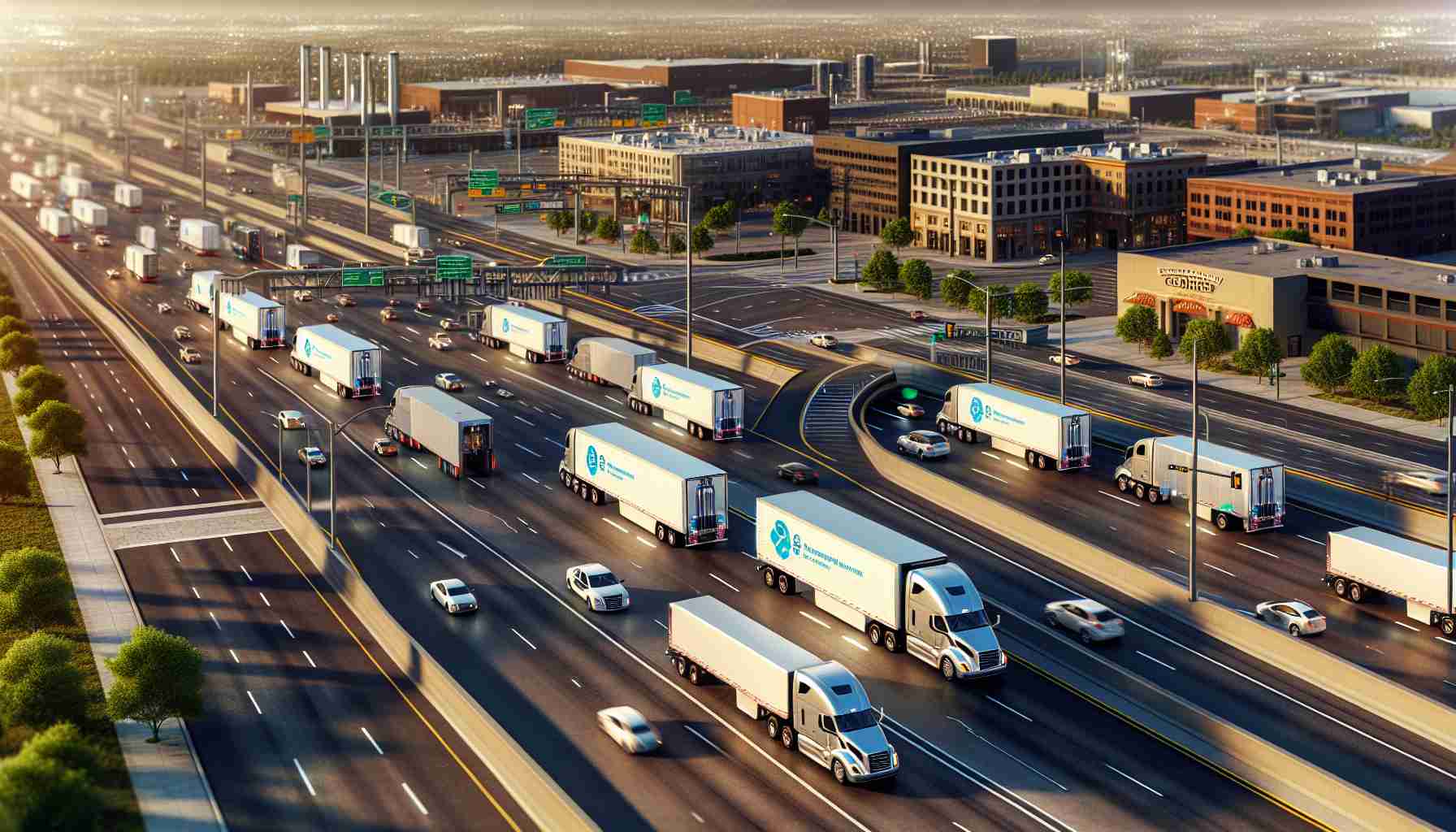DHL Supply Chain and Diageo North America have taken their sustainability efforts a step further by introducing hydrogen fuel cell electric trucks into their U.S. fleet. Manufactured by Nikola Corporation, these Class 8 trucks are the first of their kind to operate daily in Illinois and are expected to make a significant impact on sustainable transportation.
By incorporating these hydrogen fuel cell trucks into their logistic operations, DHL and Diageo aim to reduce carbon emissions by 80% annually when compared to diesel trucks. This move towards hydrogen fuel cells plays a vital role in contributing to a cleaner and greener environment as these trucks produce no tailpipe emissions, ensuring cleaner air quality for all.
Apart from the positive environmental impact, the introduction of these trucks also enhances the driver’s experience. With reduced noise levels, improved safety features, and enhanced comfort, the driver’s satisfaction and overall performance are set to improve significantly.
DHL Supply Chain has been working closely with Diageo North America for over two decades to find innovative solutions to decarbonize their logistics operations. These hydrogen fuel cell electric trucks are just one part of a broader sustainability strategy that involves the use of battery electric vehicles, route optimization, and collaboration with other partners to further reduce carbon emissions.
By integrating Nikola’s hydrogen fuel cell electric trucks into their fleet, DHL Supply Chain takes a significant step forward in their commitment to decarbonize their business operations. Through their newly announced Strategy 2030, DHL ensures that sustainability becomes a core component of their strategic objectives.
This collaboration between DHL, Diageo, and Nikola represents a joint effort to promote the transition to zero-emissions transportation. By investing in hydrogen fuel cell technology, DHL and Diageo are aligned with their missions to achieve net-zero carbon emissions across their operations. Furthermore, this milestone builds upon the previous success of introducing electric vehicle yard trucks at the Diageo campus back in 2015.
The deployment of these hydrogen fuel cell electric trucks has been the result of extensive coordination, collaboration, and technological education. Close communication with state and local stakeholders, trial runs, and effective technology education are some of the key factors that ensured a smooth rollout of these trucks.
Overall, the introduction of hydrogen fuel cell electric trucks into the U.S. fleet of DHL and Diageo marks a significant milestone in sustainable transportation. With their commitment to decarbonization and the incorporation of innovative technologies, these companies are setting a new standard for achieving greener and more efficient logistics operations.
Frequently Asked Questions:
1. What type of trucks have DHL and Diageo introduced into their U.S. fleet?
DHL and Diageo have introduced hydrogen fuel cell electric trucks manufactured by Nikola Corporation into their U.S. fleet.
2. How are these hydrogen fuel cell trucks expected to impact sustainable transportation?
By incorporating these trucks into their logistic operations, DHL and Diageo aim to reduce carbon emissions by 80% annually when compared to diesel trucks.
3. What are some of the environmental benefits of using hydrogen fuel cell trucks?
Hydrogen fuel cell trucks produce no tailpipe emissions, contributing to a cleaner and greener environment and ensuring cleaner air quality.
4. How do the hydrogen fuel cell trucks enhance the driver’s experience?
The introduction of these trucks leads to reduced noise levels, improved safety features, and enhanced comfort, resulting in an improved driver’s satisfaction and overall performance.
5. How long have DHL and Diageo been working together?
DHL Supply Chain has been working closely with Diageo North America for over two decades to find innovative solutions for decarbonizing their logistics operations.
6. What other sustainability measures do DHL and Diageo employ?
Apart from hydrogen fuel cell electric trucks, DHL and Diageo utilize battery electric vehicles, route optimization, and collaborate with other partners to further reduce carbon emissions.
7. What is DHL’s Strategy 2030?
DHL’s Strategy 2030 ensures that sustainability becomes a core component of their strategic objectives and guides their commitment to decarbonize their business operations.
8. What does the collaboration between DHL, Diageo, and Nikola aim to promote?
The collaboration aims to promote the transition to zero-emissions transportation by investing in hydrogen fuel cell technology.
9. What has been the previous success of Diageo in adopting sustainable transportation?
In 2015, Diageo introduced electric vehicle yard trucks at their campus, which served as a milestone in sustainable transportation.
10. What were some of the key factors that ensured a smooth rollout of the hydrogen fuel cell electric trucks?
The successful deployment of these trucks was the result of extensive coordination, collaboration, and technological education, including close communication with stakeholders and trial runs.
Definitions:
– Hydrogen fuel cell electric trucks: These trucks use hydrogen fuel cells to generate electricity, which powers the vehicle’s electric motor. The hydrogen fuel cells produce no tailpipe emissions, making them a clean and sustainable alternative to diesel trucks.
– Decarbonize: The process of reducing or eliminating carbon emissions from a particular sector or operation.
– Net-zero carbon emissions: Achieving a balance between the amount of carbon emitted and the amount removed from the atmosphere, resulting in no net carbon emissions.
– Logistics operations: The planning, implementation, and management of the movement and storage of goods, including transportation and warehousing.
Suggested related links:
– DHL Official Website
– Diageo Official Website
– Nikola Corporation Official Website
